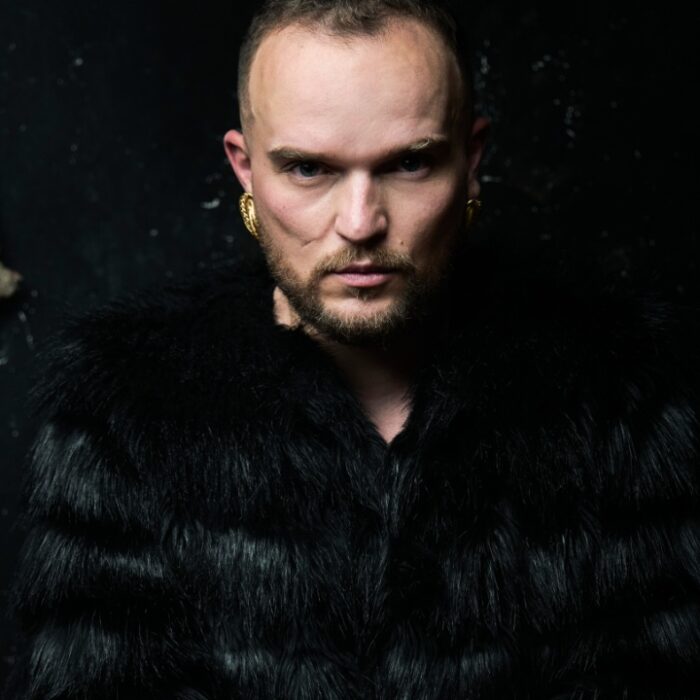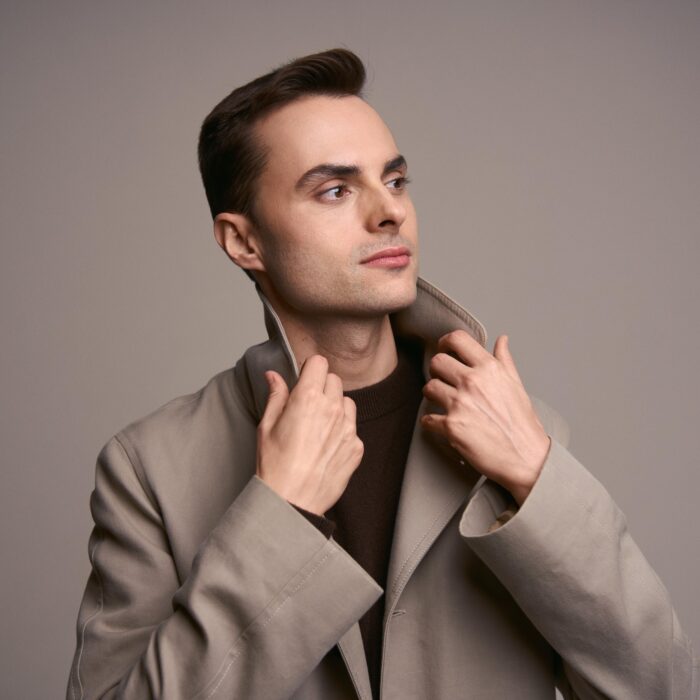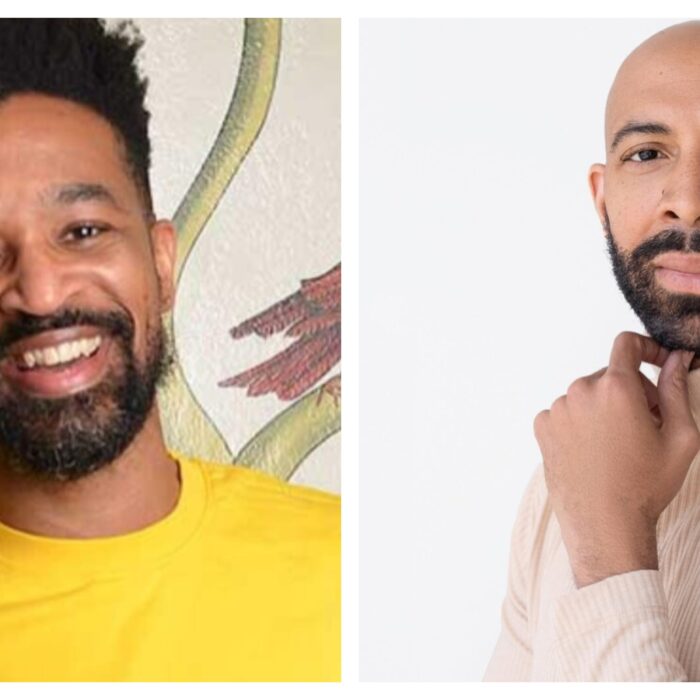
Q & A: Soprano Anastasia Bartoli On Her Upcoming Role Debut As Lucrezia In Verdi’s ‘I Due Foscari’
By Alan NeilsonPhoto credit: Amati Bacciardi
Venice’s Teatro La Fenice is currently staging Verdi’s “I Due Foscari” with a stellar cast that includes soprano Anastasia Bartoli in the role of Lucrezia Contarini.
Bartoli has hit the headlines over the past few seasons with a string of stunning performances across Italy. In 2023 alone she has appeared in a variety of diverse roles, ranging from the title role in Cilea’s “Gloria” in Cagliari, Desdemona in a concert performance of Verdi’s “Otello,” Elvira in “Don Giovanni” at the Maggio Musicale, and Cristina in “Eduardo e Cristina” at this summer’s Rossini Opera Festival. OperaWire noted “her formidable instrument that is strong across the range” and she glided “over the line regardless of its complexity.”
During rehearsal for “I Due Foscari,” OperaWire managed to catch up with her for what proved to be a revealing and interesting interview.
OperaWire: What was your pathway into opera?
Anastasia Bartoli: I was born into this world. My mother is Cecilia Gasdià. She was a well-known opera singer and is now the Sovrintendente of the Foundation of the Arena di Verona. So even when I was in the belly of my mother, I was part of this world. I have lived and breathed opera all my life, and I loved opera right from the beginning. It is, however, one thing to love opera and another to choose to become an opera singer. To become an opera singer, you need to have a vocation. I had the call later than is normal. I didn’t start my training until I was 23, which was ten years ago.
I remember asking my mother if she would teach me to sing. Obviously, I had sang from when I was a small child, but had never trained to become an opera singer. I went through a period when I sang jazz and heavy metal, which I loved. I used to sing in clubs and bars. My mother had never tried to force me to become an opera singer, as she was too aware of all the problems of becoming a singer. You need the right character as well as the talent to be a successful opera singer, so it was not something she wanted to force upon me.
OW: Is it difficult to have your mother as your teacher?
AB: Yes, it was very difficult at the beginning; it was hard to switch between treating her as my mother and treating her as my teacher, and we argued a lot. Fortunately, she is very smart, so when we had these problems, she realized I needed to try something different and to study with other teachers, and I learned a lot from them: not just what to do, but also what not to do. Now, after experiencing the other teachers and having learned from them, I can honestly say that the best teacher for me is my mother, and our relationship is a very good one. She has her own technique, which is not the same as mine, and she understands this and adapts it to meet my needs. I am very grateful to her, as she is an excellent teacher, and I now realize this. She also advises me on what is and is not good for my voice and how I can make sure it have a long life.
We have different voices, but we share some common repertoire. This summer, I made my debut at the Rossini Opera Festival in Pesaro, where she was a great diva. She made her debut at the festival 40 years ago, and now I was singing at the same venue and singing the same music as she did. It wasn’t the same role, but Rossini recycled much of the music from “Ermione,” in which she starred, for “Eduardo e Cristina,” in which I sang. It was a great moment for her and, of course, for me!
OW: You have a very confident manner on stage. Is this something your mother taught you?
AB: My mother is a really strong character, and this is something that I think she has developed in me, so I have a naturally confident manner. We are both Leos, which also helps. She also gave me a lot of practical advice. Over the past ten years, she has always been with me in everything I do, even if we are far apart. If I have a problem with a particular passage or some notes, I will call her and we have a chat about it. She is always there to support me.
OW: What did you make of your character Cristina from “Eduardo e Cristina” and of Stefano Poda’s staging?
AB: I really enjoyed the experience, and I liked the character. Cristina has a really strong character. She managed to have a husband and a child and keep them hidden from her family and the court for a long time. When everything is discovered, she initially fights with her father, but eventually accepts her destiny. She says, “okay, father, do what you want with me, and I will accept it.” She is very strong, even a little crazy.
The stage director, Poda, is a great director. For me, he is a genius. I worked with him for two months in Pesaro, and I have to say he has different ideas from traditional directors. We have to be honest and say that “Eduardo e Cristina” is not a great opera. It has a lot of recitatives, which were not written by Rossini, and we cut a lot of them. I imagine the audience found them a little boring at times. If you think about this opera and forget about Poda’s production and instead re-imagine it with a traditional director, it would be boring. But Poda’s staging was very good! In order to work with him, you must embrace and accept his view. If you don’t accept it all, then it won’t work.
OW: How would you describe your voice?
AB: I have a very strange type of voice. It has followed a completely different path from a normal soprano. Normally, we expect sopranos in their early years to do roles that are light and easy, but this was not the way my voice developed. My voice matured quickly, and I felt very comfortable with roles that required a lot of agility but were also dramatic, so I started with dramatic roles such as Lady Macbeth, Abigail, and Elvira from “Ernani.” I define myself as a soprano dramatico di agilità, and, who knows, at the end of my career I will try the more lyrical roles. It is not the normal pathway, but I follow my voice and perform the roles in which I feel comfortable.
OW: You are currently in rehearsal for La Fenice’s production of Verdi’s “I Due Foscari,” in which you will be playing Lucrezia. How do you view her character?
AB: Lucrezia is in a desperate position. She has two children, and her husband has been exiled. Her husband’s father is the doge, and she thinks maybe he can help him. But he can’t. She fights against the power that is attacking her husband, as this is what she is: a fighter! She fights until the end.
OW: How do you find the music for Lucrezia?
AB: The music helps define her. The libretto defines her as a strong character, but the music magnifies it. When I walk onto the stage, I am already very angry and ready to fight. There is a wonderful dramatic cabalata that requires a high tessitura and a lot of agility. I really like it, as it lets me show off my voice and technique. Maestro Rolli is conducting with a Rossini touch, so we can do variations and cadenzas and double repeats of phrases in which I can add something, if I want to, which of course I will. The music is very dramatic, it is very strong, it is very difficult, and I love it.
OW: What sort of production can the audience expect?
AB: It is a traditional production. It was first played at the Maggio Musicale Fiorentino last year. It is a good, comfortable production. It asks a lot of the actors on stage. It is exhausting; I have to give a lot. By the end, I am emotionally very tired, but I feel very, very happy with it.
OW: After “I Due Foscari,” you are scheduled to play Mimi and then Tosca, which I believe are your first performances in Puccini roles. Is this something you see as an important career step?
AB: Yes! I am at the beginning of my career, and this will give me a fabulous opportunity to discover different aspects of my voice. I don’t like to define myself as a Verdiana, a Rossiniana, or a Pucciniana. I prefer to engage with a wider repertoire.
All the roles I am singing at the moment require a lot of vocal agility. But I also want to sing more lyrical roles. I try this when studying with my mother or in concerts, and I find that when singing Puccini, my voice changes completely. It becomes a rounder sound and I love it. It is so different from my voice when I am singing my current repertoire. So yes, I am looking forward to these roles a lot.
OW: What are your medium and long-term ambitions?
AB: My dream is to sing Strauss. In particular, I want to sing Salome. I love that opera. First of all, I must study the phonetics of the German language because, when I sing it, I want it to be perfect. I need to know the exact meaning of the text; otherwise, I won’t be satisfied with my performance. It is something I shall take my time doing, as it is something that I want to do well. Also, I would like to sing some Wagner roles.
Categories
Interviews


